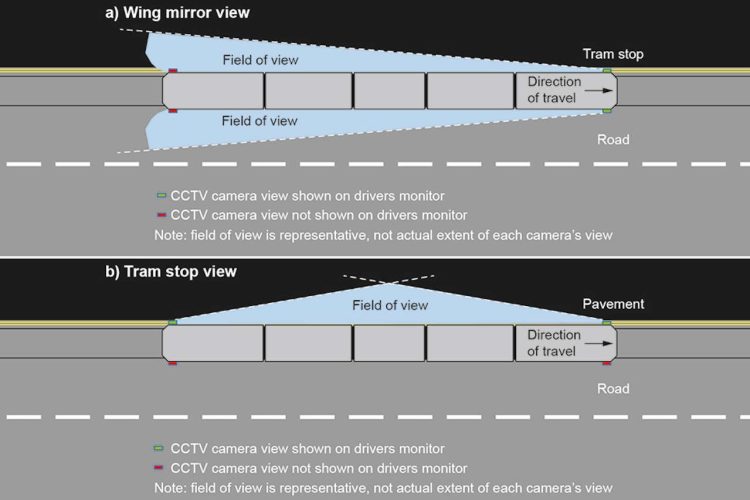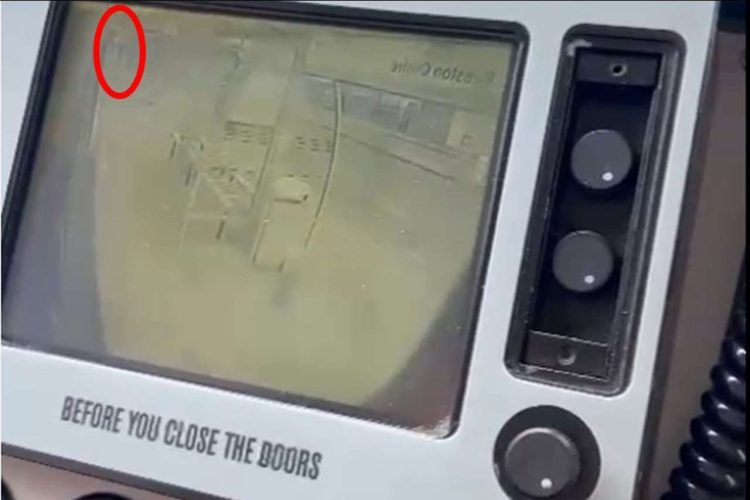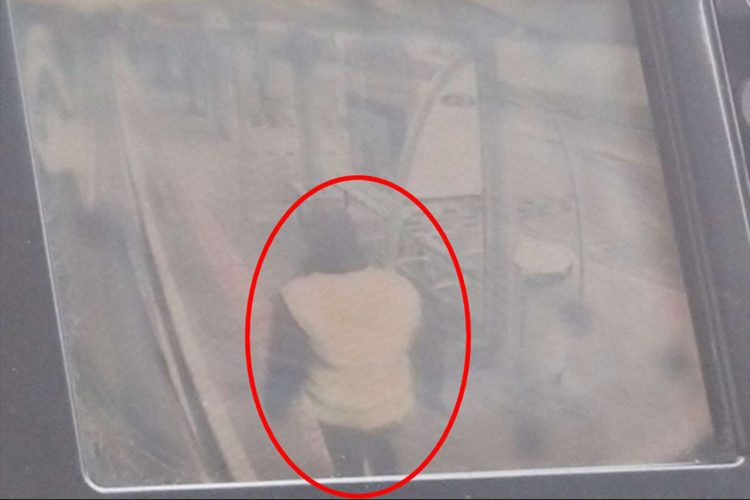The Rail Accident Investigation Branch (RAIB) has issued its report about a passenger being dragged along whilst attempting to board a tram at the Beeston Centre tram stop in Nottingham.
On 22nd February 2023, shortly before the tram departed, a passenger placed a hand and a walking stick into a tram’s closing doors to try to stop them from closing.
When the doors closed the walking stick became trapped, but the driver was unaware that it was trapped and started the tram, with the passenger holding onto his walking stick.
He was pulled alongside the tram for around three seconds, then fell against the tram and landed on the edge of the tram stop and suffered serious injuries.
CCTV footage from the tram stop shows the tram arriving and its doors becoming fully open at 18:04:09. The footage also shows that the doors started to close again 10 seconds later, even though Nottingham Trams Limited (NTL) tram drivers are trained to allow a wait of around 15 to 20 seconds at tram stops.
The passenger had waited to cross the tramway behind the arriving tram before walking to the tram stop and activating a travel card.
By the time the passenger attempted to board the tram’s rearmost doors, CCTV footage shows they were already starting to close. Closing tram doors are accompanied by an audible warning.
The doors were fully closed by 18:04:21 and the tram started to move three seconds later. Once the doors had closed the walking stick was not detected by the door’s obstacle detection system, which is designed to detect obstructions over 30 mm wide.
If no obstacles are detected, the closed doors will lock, completing an electrical interlock circuit that permits the driver to take traction power to move the tram. Audible and visual indications that the doors have closed and locked are also given to the driver
After the accident, NTL tested the tram’s doors and found that they met the relevant detection requirement. Although the walking stick was not recovered and its diameter is unknown, a survey of the type of walking stick apparently used showed they are typically less than one inch in diameter, and are unlikely to trigger the tram’s door obstacle detection system.
NTL’s driving policy requires that before commanding the doors to close, tram drivers must use their in-cab CCTV screens to check that the doors are clear, and that ‘it is important to keep a good lookout for vulnerable passengers that may become separated or articles protruding through the doors’. Once doors are closed and locked, drivers are required to carry out a final visual check using the CCTV screens, to ensure it is safe to depart.
In response to an incident on the Nottingham tram network in 2017 when an empty pushchair was trapped in tram doors and dragged along, RAIB issued urgent safety advice relating to the importance of tram drivers carrying out an effective final visual check and not relying solely on the door closed. In response to the RAIB, NTL trams were modified to provide drivers with a button that provides an alternative ‘rear view’ once the doors are closed, which gives them a better opportunity to carry out an effective final safety check before departure.

The driver involved in the Beeston accident said they did not use the ‘rear view’ button before departure but acknowledged that they had been trained to use this view. They did not do so on this occasion because they thought all the passengers were already on the tram, which means they relied solely on the ‘wing mirror’ view to conduct a final safety check.
In their investigations, RAIB found that the visibility of a person on the platform, was poor in the most favourable conditions when the bodyside camera footage was displayed in ‘wing mirror’ view but was more visible when the cameras were switched to ‘rear view’ mode.

RAIB also found that tram drivers do not always use the ‘rear view’ button to complete a final safety check before departing, which suggests that NTL’s monitoring of drivers to ensure that they are driving to the relevant standard may not be completely effective.

In response, NTL reported to the Office of Rail and Road (ORR) that ‘NTL are participating with the other operators in UK Tram to evaluate a potential new door seal for trams with pressure-sensitive switches. It is unlikely however that the current tram doors could accommodate such a seal. It may be that any further trams be specified as having to incorporate door seals with pressure-sensitive edges.’






Responses